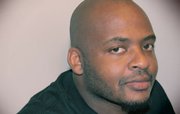"I can't stop thinking about your 'How do you want to be loved?' question," my student Wilson said to me. "And I was just wondering, when you asked yourself that question, what did you come up with?"
I teach at Vassar College, an educational institution where resources, need-blind admissions, multisyllabic disengagement, cocaine and curious students are in relative abundance. This semester, I challenged myself to do more than move my 60 students beyond traditional "either/or" binaries of feeling or thinking, critical analysis or creative writing, intellectualizing or confessing, radical or capitalist praxis. I was less invested in cultivating students who could critically interrogate text, faithfully imitate text, or courageously innovate text, and more concerned with making sure my students and I left the classroom, sentimental as it sounds, better at dreaming and loving unreasonably.
Initially, I sourced my pedagogical shift to the freedom that accompanies publishing two bluesy black books in one year. But on Nov. 3, a day after Renisha McBride was murdered with a shotgun blast through a screen door outside Detroit, I realized that my pedagogical shift could be sourced to the reasonable murder of Trayvon Martin.
There's always reason to doubt the vitality and perspective of black boys. In a nation dedicated to death, deception and the mastery of disengagement, it is reasonable for a young black boy armed with iced tea and Skittles to be murdered on his way to watch an All-Star game. It's reasonable for a jury of folks who have no idea how to love black children to find that child guilty of being a nigger. It's reasonable for a nation of cowards to treat the courage, fear and rhetorical dynamism of his friend Rachel Jeantel like niggerish gibberish.
But this is just part of our story.
Trayvon Martin was a real, fleshy black American boy. Had he not been murdered, like most of us, he likely would have bobbed his head to spectacular disses of black women and black femininity. He probably would have found it hard, and damn near impossible, to invest in unreasonable love of black girls.
This is just part of our story.
I don't know the rest. But I do know that Trayvon Martin could have taken his disrespectful profiling and beating like a reasonable black boy. He could have lowered his head, said I'm sorry for frightening you, crazy-ass cracker, and muted the crazy-making treble in his chest. Instead, he (allegedly) unreasonably swung back. He (allegedly) connected. And he tried to live. Unreasonably.
When my student Wilson asked me how I want to be loved, I was afraid to tell that I want to be loved by an unreasonable love that loves me enough to say and mean that Trayvon Martin, Rachel Jeantel, you and I are beautiful and worthy of second chances and healthy choices.
This is just part of our story.
I want to be loved by an unreasonable love that refuses to accept poverty and sexual abuse as reasonable.
I want to be loved by an unreasonable love that loves black art and black communities enough to insist that black artists stop dismantling black women's bodies, hearts and minds for profit.
I want to be loved by an unreasonable love that loves black art and black communities enough to insist that every letter, color, word, shade, scene, rhyme, paragraph, photograph and step be rooted in a textured exploration of unreasonable black love.
I want to love and be loved by an unreasonable imaginative love that swings back and insists on superb universal health care, progressive tax rates that eliminate all rich folks exemptions, and mandatory courses on Intersectional Love and Discourse in every middle school, high school, college, church and community center in this country.
I want to be loved by an unreasonable love that refuses to conflate honesty with transformation and hard work with revelatory work, a love that expects unreasonable love from police, teachers, doctors, politicians, presidents and CEOs.
I want to be loved by an unreasonable love unafraid to reckon and fight and listen and share before going to bed, an unreasonable love that gets turned on by periodically turning off crippling pathologies and the Internet.
This is just part of our story.
I want to be loved unreasonably by an unreasonable love because we've nearly drowned in the poison of reasonable loving, reasonable liking, reasonable living, reasonable essays, reasonable art and reasonable political discourse.
I want to be loved by an unreasonable love that knows the only reason we're still here, breathing, imagining, fighting, wandering and wondering is because of the unreasonable work of a small but committed group of black southern unreasonable lovers.
I want to be loved by an unreasonable love that loves itself enough to leave me if I insist on loving it reasonably, an unreasonable love that tells its mama, its father, its friends, its co-workers, its auntie, its mentors, its mentees, its lover, its grandmother, that the reasonable era of black American death and destruction ended in 2013.
This is just part of our story, but I want the rest of the story to be written by reliable black characters, black activists, black parents, black children, black aunties, black uncles and black authors ready to demolish American reasonable doubt with waves and waves of unreasonable black American love.
Kiese Laymon was born and raised in Jackson. He is the author of "Long Division" and "How To Slowly Kill Yourself and Others in America" (Agate Bolden). He is a contributing editor at Gawker and frequently blogs at kieselaymon.com. Laymon is an associate professor of English at Vassar College.
This piece originally appeared on colorlines.com.


